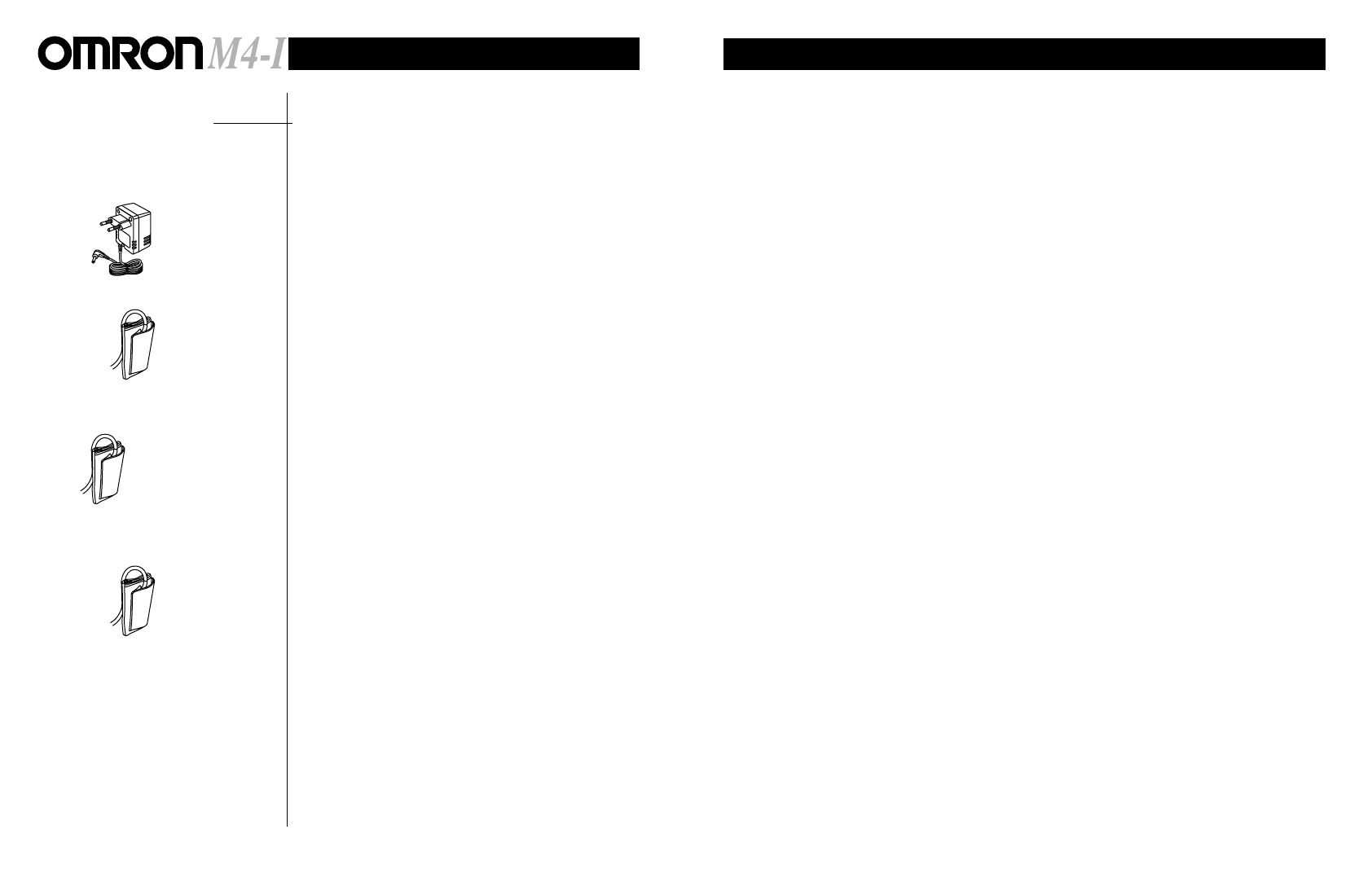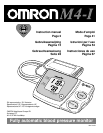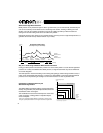
English
12
13
Calibration
The accuracy of this blood pressure monitor has been
carefully tested and is designed for a long service life.
It is generally recommended to have the monitor ins-
pected every two years to ensure correct functioning
and accuracy. Please consult your authorised dealer
or the OMRON Customer Service at the address
given on the packaging/attached literature.
OMRON devices are especially designed for regular
blood pressure monitoring. OMRON therefore has
direct contact with medical specialists and takes
advice, on the design and features of its blood pres-
sure monitors.
Spare parts & accessories
Due to high company quality standards, OMRON con-
siders the main unit as a non-serviceable part becau-
se of the necessity of proper calibration after replace-
ment of high-tech components.
OMRON spare
parts
Mains adapter
Normal cuff,
Arm circumference 22 – 32 cm
Code: CM
Extra large cuff,
Arm circumference 32 – 42 cm
Code: CL
Small cuff,
Arm circumference 15 – 22 cm
Code: CS
Some useful information about blood pressure
What is Blood Pressure?
Blood pressure is a measure of the force of blood flowing against the walls of the arteries. Arterial blood
pressure is constantly changing during the course of the heart’s cycle. The highest pressure in the cycle is
called the SYSTOLIC BLOOD PRESSURE; the lowest is the DIASTOLIC BLOOD PRESSURE. Both pres-
sure readings, the SYSTOLIC and DIASTOLIC, are necessary to enable a doctor to evaluate the status of
a patient’s blood pressure.
Many factors such as physical activity, anxiety, or the time of day, can influence
your blood pressure. Blood pressure is typically low in the morning and increases from afternoon to eve-
ning. It is lower in the summer and higher in the winter.
Blood pressure is measured in millimetres of mercury (mmHg) and measurements
are written with the systolic pressure before the diastolic e.g. A blood pressure written
as 140/90, is referred to as 140 over 90 mmHg.
High Blood Pressure
The discovery that you have high blood pressure is more often than not a chance finding. People with high
blood pressure usually feel well unless the blood pressure has been high for some time, and complications
have occurred. Such complications may effect the heart, brain and other important organs. They may bring
on ill health and affect your enjoyment of life. It is because of the complications, rather than the high blood
pressure itself, that this condition is taken so seriously today.
High blood pressure is sometimes referred to as raised blood pressure, elevated blood pressure, or hyper-
tension. Most people with this condition require regular long-term drug treatment, usually in the form of
tablets. Some can lower their blood pressure sufficiently by other means, such as changing diet and life-
style.
People who have high blood pressure, and who also understand their condition, have an advantage. They
are more likely to attend for regular check-ups, to cooperate with advised diets and changes in lifestyle, and
to take medicines correctly. This immediately leads to better health. It is hoped that, by a better understan-
ding of high blood pressure and how it is treated, you will take an active and informed part in your health
care, and so enjoy a better quality of life.










